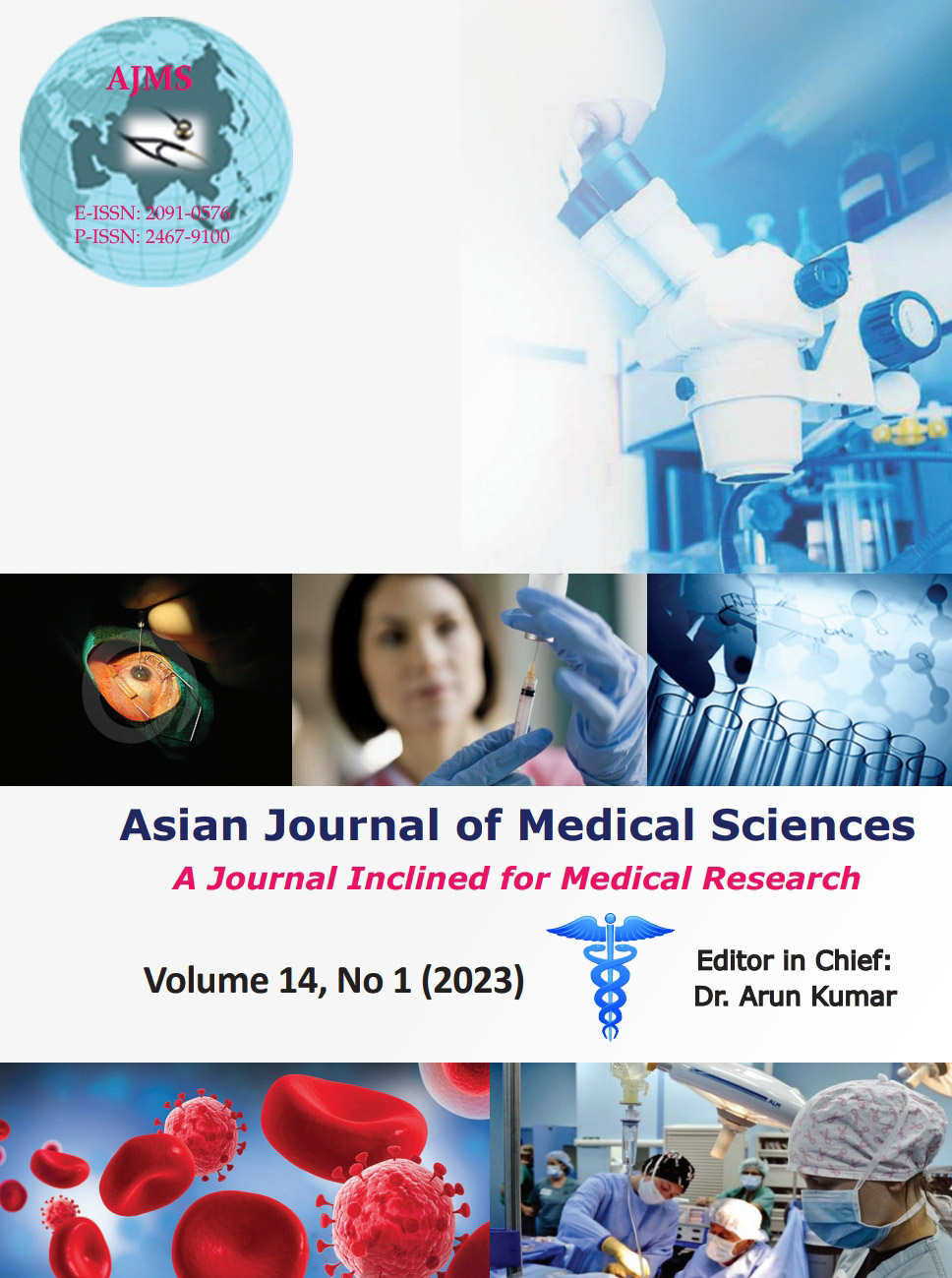Prevalence of prehypertension, hypertension, stress, anxiety among undergraduate medical students, and its association with cognitive failure: A cross-sectional study
Keywords:
Anxiety; Cognition; Hypertension; Prehypertension; StressAbstract
Background: Research shows that both hypertension and prehypertension accelerate the decline in standardized global cognitive performance. Two important risk factors for development of elevated BP are stress and anxiety. Hence, the study also focuses on assessing stress and anxiety in undergraduate medical students using validated questionnaires.
Aims and Objectives: Hypertension and prehypertension are on a rise in undergraduate medical students and are proposed to accelerate cognitive failure. This study aims to provide prevalence of hypertension, prehypertension, anxiety, stress, and its association with cognitive failure among 1st year medical students in a medical college in North India.
Materials and Methods: The study is a cross-sectional study conducted in the Department of Physiology of a Medical College on 1st year medical students. Google form was given to the whole batch of 150 medical students. Out of them, 111 students voluntarily participated. Hence, we have included them in our study. Standard questionnaire prescribed by Cohen et al., Spitzer et al., and Broadbent et al., for stress, anxiety, and cognitive failure respectively was given to students. Google documents were used as a platform to create online questionnaires that were automatically posted through a unique URL. Password protected access to URL link and a unique study ID gave students round the clock access. Unique study ID ensured confidentiality of all self-reported data. Student’s response was secured using a “cloud” database, where data were automatically sorted, scaled, and scored by custom Excel formulas. Blood pressure of all the students was measured and a Google form consisting of items from these three questionnaires was filled by the students. Data were organized and statistically analyzed by Chi-square test.
Results: In the present study, the prevalence of prehypertension was 46.8% and hypertension was 7.2%. Perceived stress score was moderate in 71.2% of subjects and high in 10.8% of subjects. Moderate-to-severe anxiety was recorded in 21.6% of students. Cognitive failure score was high (>43) in 24.3% of students. A Chi-square test of independence was performed to examine the relation between blood pressure and cognitive failure. Relationship between these variables was significant X2 (1, n=111)=7.08, P=0.029. Patients with hypertension are likely to develop cognitive failure than those with normal blood pressure.
Conclusion: The prevalence of prehypertension and hypertension is rising in medical students. Anxiety and stress being the major causes need to be addressed so as to maintain cognitive well-being of the undergraduate medical students.
Downloads
Downloads
Published
How to Cite
Issue
Section
License
Copyright (c) 2022 Asian Journal of Medical Sciences

This work is licensed under a Creative Commons Attribution-NonCommercial 4.0 International License.
Authors who publish with this journal agree to the following terms:
- The journal holds copyright and publishes the work under a Creative Commons CC-BY-NC license that permits use, distribution and reprduction in any medium, provided the original work is properly cited and is not used for commercial purposes. The journal should be recognised as the original publisher of this work.
- Authors are able to enter into separate, additional contractual arrangements for the non-exclusive distribution of the journal's published version of the work (e.g., post it to an institutional repository or publish it in a book), with an acknowledgement of its initial publication in this journal.
- Authors are permitted and encouraged to post their work online (e.g., in institutional repositories or on their website) prior to and during the submission process, as it can lead to productive exchanges, as well as earlier and greater citation of published work (See The Effect of Open Access).




